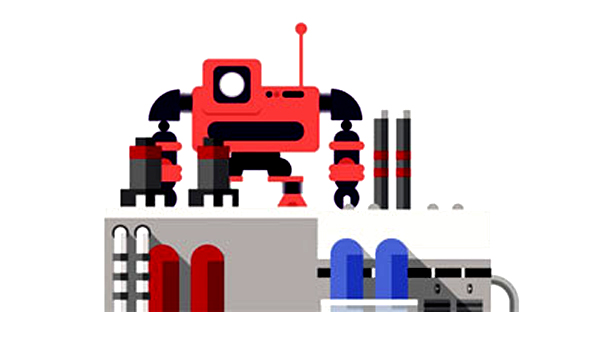Find Best Robotic Process Automation (RPA) for Your Business
We help you find the right Robotic Process Automation (RPA) for your business.

Browse Popular Robotic Process Automation (RPA)
Up-to-date listing of Robotic Process Automation (RPA) to assist you throughout your software selection and purchase journey.
Robotic Process Automation (RPA):
Robotic Process Automation (RPA) is a process automation technology used by businesses which is based on metaphorical software robots or on artificial intelligence workers.
Interactions can be automated with the help of GUI by repeating a set of demonstration actions performed by a user. Data can be handled in and between multiple applications.
Types of Robotic Process Automation
- Attended RPA
- Unattended RPA
- Hybrid RPA
- Rule-Based RPA
- Cognitive RPA
- Screen Scraping RPA
- API-Based RPA
- Virtual RPA
- Process Discovery RPA
- Workflow or Process Automation RPA
Uses of Robotic Process Automation
- Data Entry and Validation
- Report Generation
- Invoice Processing
- Order Processing
- Customer Service
- HR and Payroll Processing
- Claims Processing
- Data Migration and Integration
- Financial Reconciliation
- Compliance and Auditing
- Customer Onboarding
- Inventory Management
- Data Extraction from Emails and Documents
- IT Support and Maintenance
- Sales and Marketing
- Data Cleansing and Validation
- Order Fulfillment and Shipping
Features and Benefits of Robotic Process Automation (RPA):
Robotic Process Automation (RPA) offers a multitude of features that provide significant benefits to users, facilitating business growth and efficiency. Some of these key advantages include:
Cost Reduction and Efficiency: RPA reduces costs while increasing speed, accuracy, and consistency in business processes. It enhances the quality and scalability of production.
Enhanced Security: RPA provides additional security measures, particularly crucial for handling sensitive data and financial services.
Expert Insights: Users can gain valuable insights from experts in Intelligent Automation, Intelligent Document Processing, Robotic Process Automation, and Artificial Intelligence, keeping them informed about key trends and best practices.
Networking Opportunities: RPA allows users to network with peers, industry leaders, and intelligent automation experts, fostering deeper conversations and one-on-one sessions with Datamatics experts.
Configurability: Anyone can configure computer software or robots to emulate and integrate human actions within digital systems for executing business processes.
User Interface Interaction: RPA robots utilize the user interface to capture data and manipulate applications, mimicking human interactions. They interpret, trigger responses, and communicate with other systems for various repetitive tasks.
Rapid Implementation and ROI: RPA enables fast implementation, leading to a quick return on investment. It streamlines processes such as data extraction from SAP transactions, reducing error rates to zero, minimizing manual effort, and reducing processing time.
Employee Focus: RPA frees up employees to focus on more customer-centric activities by automating repetitive tasks. It consolidates and reads information for closing reports, improving efficiency.
Accuracy and Consistency: RPA robots follow rules meticulously, ensuring compliance and consistency. They never get tired or make mistakes.
Monitoring and Control: Every action of RPA robots is monitored, providing full control and compliance with regulations and standards, ultimately enhancing compliance efforts.
Cost Reduction and Scalability: RPA reduces processing costs, delivering a positive return on investment for most enterprises. Further cost reductions can accumulate over time, and RPA allows operations to scale massively, from desktop to cloud environments.
Workload Reduction: RPA eliminates non-value-add activities, relieving employees from increasing work pressure.
Digital Transformation: RPA delivers powerful outcomes at unlimited scale, helping companies become digital businesses faster and gain a competitive advantage on their path to AI adoption.
Flexibility: RPA is versatile, capable of automating various tasks across different departments, providing the ability to adapt to changing business processes swiftly.
Regulatory Compliance: RPA reduces regulatory risk and fines by leveraging a digital workforce. Automations can be updated promptly to align with changing regulations.
Unstructured Data Handling: RPA automates the processing of unstructured data from emails, PDFs, documents, and forms.
Task Acceleration: RPA completes tasks in seconds or minutes, enabling employees to focus on higher-value work and eliminating copy-and-paste errors when entering data into multiple systems.
Robotic Process Automation optimizes business processes, enhances security, and promotes efficiency, making it an indispensable tool for businesses aiming for growth and digital transformation.




